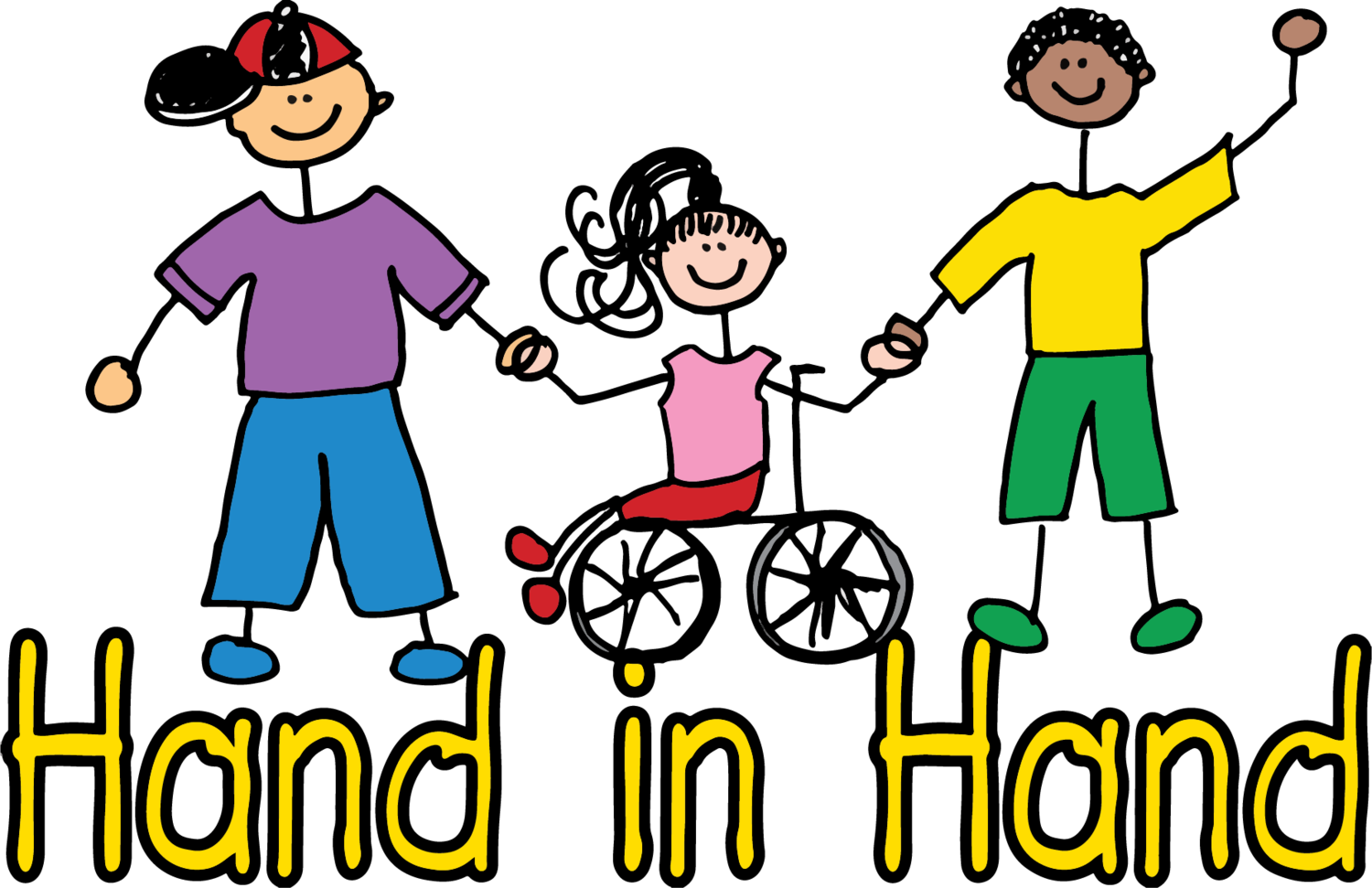They Are Listening
By Angie Kendall, Hand in Hand CEO
I remember the first time my oldest child swore. He was about two and commented on the outcome of the Chicago Bears game. I laughed so hard that tears came. He used the word correctly, intentionally and—much to
my entertainment—earnestly.
𝐇𝐞 𝐰𝐚𝐬 𝐚𝐥𝐬𝐨 𝐥𝐢𝐬𝐭𝐞𝐧𝐢𝐧𝐠.
His father wasn’t too happy about the game either, and at some point before that, something about the “Damn Bears” must have floated from his mouth to our child’s ears.
𝐇𝐞 𝐰𝐚𝐬 𝐥𝐢𝐬𝐭𝐞𝐧𝐢𝐧𝐠.
Yesterday, I was reading about the history of the University of Iowa Center for Disabilities and Development. In 1947, Dr. Raymond R. Rembolt launched a campaign to change the way we think about and talk about people with disabilities in Iowa. He used people-first language, referring to patients not as "crippled children" but as "children with disabilities"—for the first time.
He believed in humanity first.
In the ensuing 78 years, we’ve made considerable progress in how we view and talk about those with disabilities. And in some ways, we’ve made no progress at all.
𝐖𝐡𝐚𝐭 𝐫𝐞𝐦𝐚𝐢𝐧𝐬 𝐭𝐫𝐮𝐞 𝐢𝐬 𝐭𝐡𝐚𝐭 𝐤𝐢𝐝𝐬 𝐚𝐫𝐞 𝐬𝐭𝐢𝐥𝐥 𝐥𝐢𝐬𝐭𝐞𝐧𝐢𝐧𝐠.
For over a decade, disability advocates have led efforts to remove the use of "the r-word." And we made progress. We made progress in seeing people—not labels—and in recognizing that this word is not just an insult but a slur that dehumanizes those with different abilities.
Yet, despite this progress, the r-word persists in casual conversation, not just as a direct insult but as a way to describe things people find undesirable, frustrating, or broken. When people default to this word they reinforce the idea that individuals with disabilities are less than, unworthy, or inherently flawed.
But people with disabilities are none of those things. They are creators, leaders, innovators, and problem-solvers. They bring unique perspectives and talents that enrich our world in ways we cannot measure. When we allow language to diminish their worth, we contribute to a culture that sidelines and undervalues them.
We cannot let a word, carelessly thrown around, undo the decades of work that disability advocates have done to affirm dignity, respect, and inclusion. Because every time the r-word is used—whether as a direct insult or an offhand remark—the message is the same.
𝐀𝐧𝐝 𝐭𝐡𝐞 𝐤𝐢𝐝𝐬 𝐚𝐫𝐞 𝐬𝐭𝐢𝐥𝐥 𝐥𝐢𝐬𝐭𝐞𝐧𝐢𝐧𝐠.
While some may see name-calling and the use of "just a word" as harmless, I’m here to tell you that labels, derogatory comments, and elementary school-level name-calling are far from harmless.
And research shows that the r-word is making a resurgence, and there is a clear effort to add the suffix “-ard” to other words, specifically to insult individuals of both left- and right-wing political ideologies.
And each time, my stomach churns.
These words are far from a door to meaningful conversation.
𝐀𝐧𝐝 𝐭𝐡𝐞 𝐤𝐢𝐝𝐬 𝐚𝐫𝐞 𝐬𝐭𝐢𝐥𝐥 𝐥𝐢𝐬𝐭𝐞𝐧𝐢𝐧𝐠.

